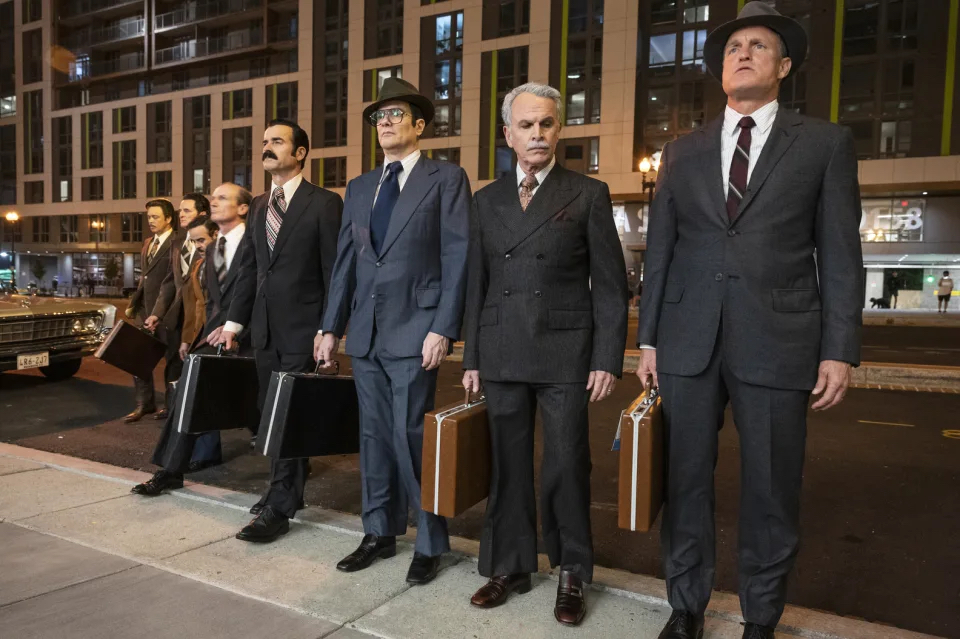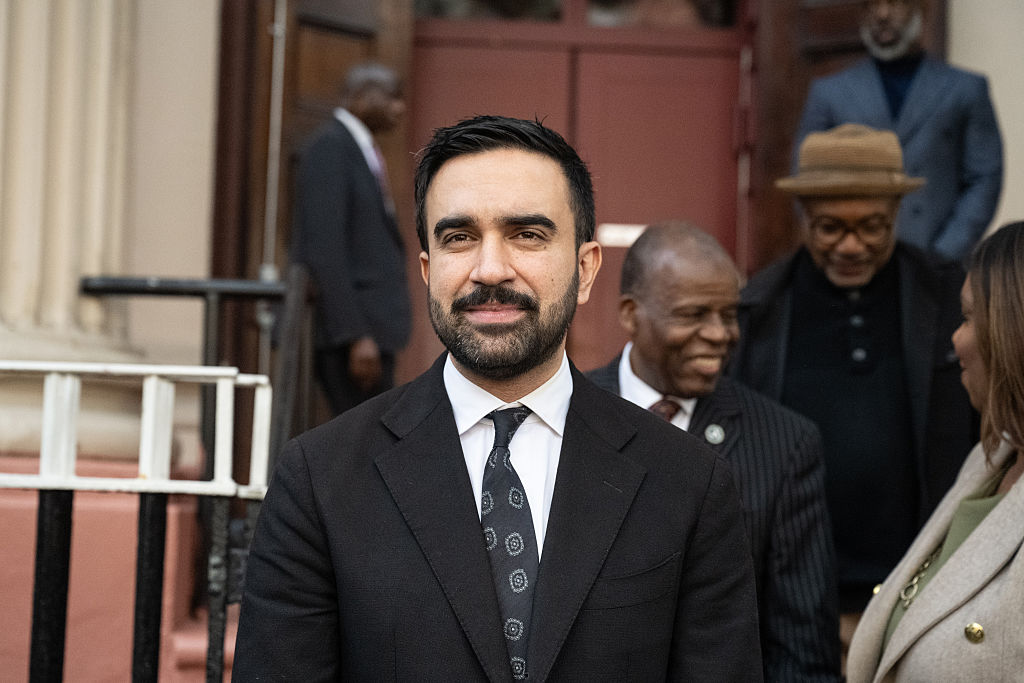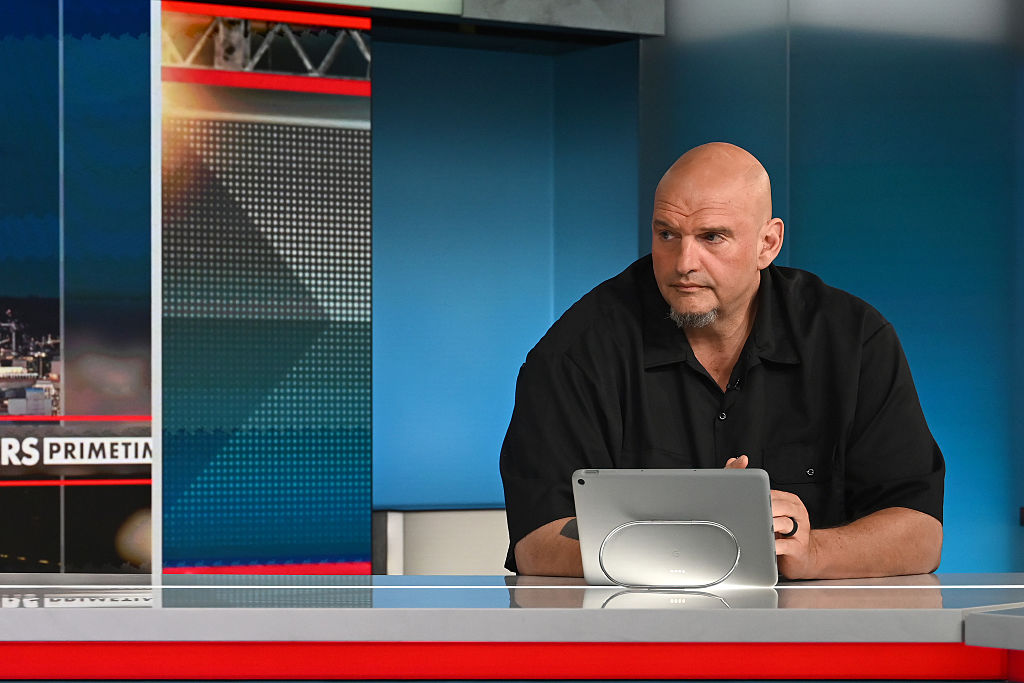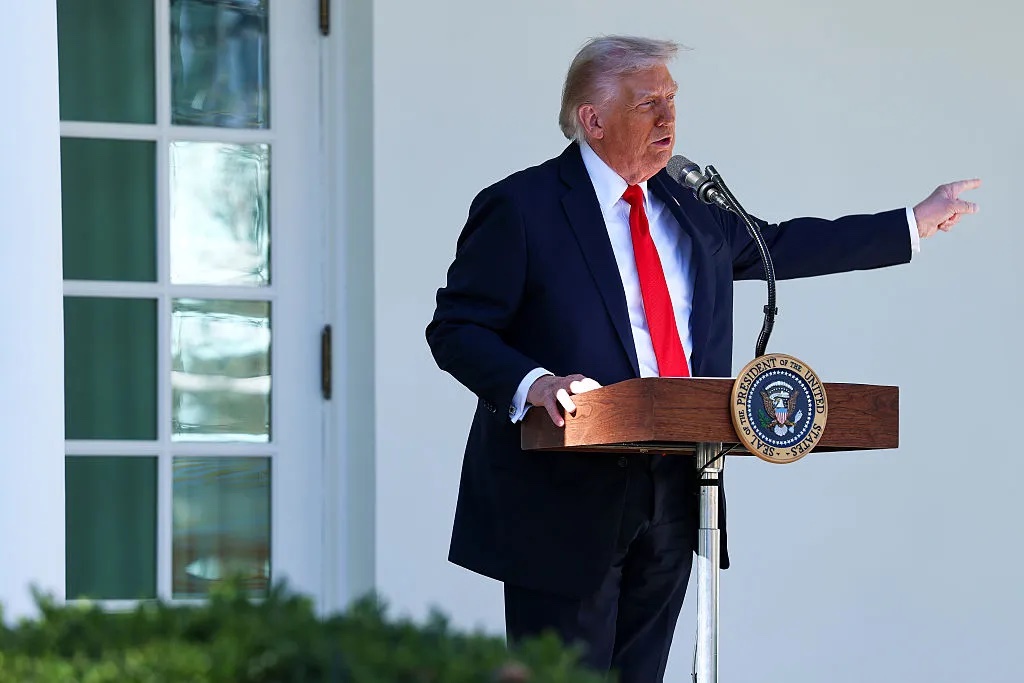I suspected something was wrong when I first heard that HBO would be producing a TV series called White House Plumbers. The network initially said it would be coming in 2023, date unspecified. Then the show was scheduled for March, but as March approached, the network added no specificity regarding the release date. March came and went, a worrisome sign, as did April. The show finally appeared last night, May 1 — a Monday night, not the Sunday night HBO reserves for its best stuff.
Upon watching the first of five scheduled episodes, I can see the reason for the delay. I told my wife I planned to watch the show, so she gave the trailer a go. “I could only watch half of it,” she reported back. “It was so bad.” Nevertheless, I insisted that she try the show with me, given that I was obligated to watch it and give my perspective as a presidential historian. She watched the opening scene and stopped before the opening credits.
Those credits, however, reveal what’s going on here. We are all familiar with the normal disclaimer telling people that this was based on actual events, but names were changed to protect the innocent. This one helpfully explains that no names were changed, as everyone was found guilty.
The theme of White House Plumbers is that dangerous right-wing bumblers, enabled by Richard Nixon and his top aides, were a threat to American democracy. The plumbers did indeed blunder multiple times, and not just at the infamous Watergate break in.
But White House Plumbers is determined to make its protagonists, G. Gordon Liddy (played by Justin Theroux) and Howard Hunt (Woody Harrelson) as buffoonish as possible. This is not to defend Liddy or Hunt, both of whom were bad actors in an unfortunate drama. Yet White House Plumbers portrays them as two-dimensional caricatures rather than complex people who made a series of very wrong choices with catastrophic results for our nation.
It’s hard to decide which of the two main characters is treated worse. There’s certainly a lot to work with on Hunt, an ex-CIA operative turned novelist and PR flack who saw the Nixon White House’s desire to plug leaks – hence the name “plumbers” — as a way back into government. In White House Plumbers, Hunt is portrayed as a prognathic neanderthal who yells at his long-haired kid for sitting next to a copy of TIME with Pentagon Papers leaker Daniel Ellsberg on the cover. “Daniel Ellsberg? How did this leftist propaganda end up in my house?” he asks. “We subscribe,” responds the son. In the White House, Hunt tells Egil “Bud” Krogh (Rich Sommer) that “Ellsberg should be tarred and feathered and hanged,” which prompts Krogh to tell him that their boss, Nixon, would agree.
Krogh was right about that, as Nixon definitely had vindictive feelings towards Ellsberg. On June 14, 1971, he told aide John Ehrlichman, who would go to jail in the Watergate aftermath, “Hell, I wouldn’t prosecute the Times. My view is to prosecute the [expletive, expletive] that gave it to ’em.” On June 29, Nixon told Attorney General John Mitchell, who also went to jail as a result of the scandal, “The main ball is Ellsberg. We’ve gotta get this son of a bitch…”
Hunt’s right-wing ravings are actually the show’s attempt at character development. When Hunt hears the Bay of Pigs mentioned, he is quick to say it was the fault of John F. Kennedy, not the CIA. He grumbles about “Goddamn Jane Fonda” and, when told on a trip to Los Angeles that he is near Warren Beatty and Paul Newman’s houses, he barks out, “Communists.”
Remarkably, Hunt is the more nuanced character when compared to Liddy. Liddy was indeed a blowhard, but he was also a former prosecutor and political appointee at Treasury before coming to the Nixon White House. We are introduced to him teaching a woman in his office how to disable a potential rapist with a pencil. Liddy plays Hitler records at full volume when Hunt and his wife Dorothy (Lena Headey) come over for dinner with Liddy and his wife Fran (Judy Greer). When Liddy inexplicably runs upstairs after neighborhood kids throw something at the house, Hunt asks, “Why is he going upstairs?” “Why don’t you ask Hitler?” Dorothy responds. After they leave, she then tells him, “The sooner you’re done with this guy the better.” Viewed from the vantage point of history, it is true that Hunt, Liddy, and the country would have been better off had the real Hunt followed this advice.
We first hear the name “the Plumbers” midway through the episode, when Hunt has it put on the nameplate of their office at the Old Executive Office Building. Liddy had started calling their operation “Odessa,” after the network that helped Nazis escape to South America, but Hunt evidently liked Plumbers (the disagreement over nomenclature between the two is a running joke in the show). In reality, the “Plumbers” name was an unofficial one, coined by National Security Council lawyer David Young’s grandmother. When Young told her that, “I am helping the president stop some leaks,” she responded, “Oh, you’re a plumber!” His grandfather was apparently a plumber, and Young put the sign up in front of the office.
The amazing thing about the whole Watergate story is how much we know about it. Watergate is one of the most researched and examined episodes in American history. We know enough to provide grist for a show like this one, even as the burglary was a failed operation launched by people trying to limit what the outside world knew. This was the essential irony of Watergate. As Princeton scholar Gary J. Bass put it, “Because of the tapes, the fiercely secretive Nixon has wound up running the most open White House in history.”
The creators of White House Plumbers provide their own form of openness at the very end of the episode, when the credits run. On screen we see the words, “This program is a dramatization inspired by true events. Some of the events, characters and dialogue have been fictionalized, modified, or composited for dramatic purposes. But Richard Nixon definitely resigned from the presidency in disgrace.” In other words, it seems to say, the truth of the portrayals does not matter, as the main point — Nixon’s resignation — is unassailably true. We all learned that when Nixon flew off in a helicopter on August 9, 1974.





















